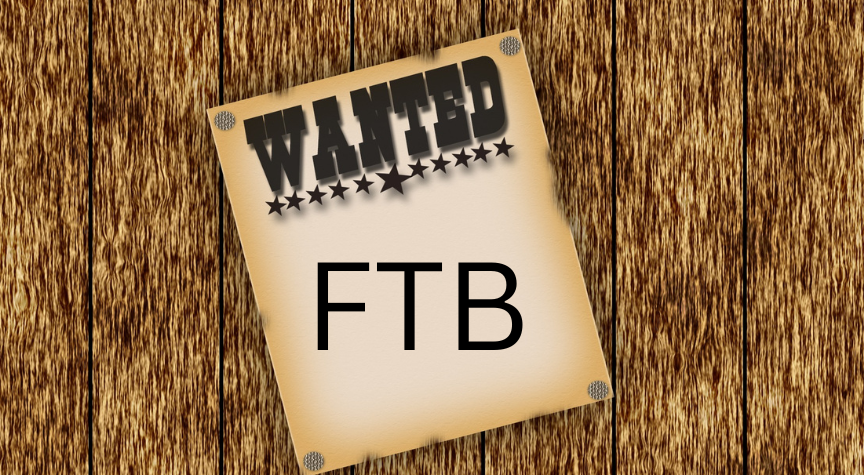California’s FTB is offering amnesty for syndicated conservation easements and captive insurance company tax deductions. Both investments are highly-sophisticated, often-fraudulent tax schemes. I’ve been getting lots of calls recently from taxpayers who invested in one of these for their generous tax write-offs, but who are now under FTB audit. If the FTB finds a syndicated conservation easement or captive insurance company investment is not legitimate, then the taxpayer is subject to a 40 percent penalty, plus a doubling of the interest rate. Unfortunately, many of these transactions are not legitimate Read more »
CA Franchise Tax Board
California’s Franchise Tax Board’s Most Wanted List
California’s Franchise Tax Board (FTB) publishes a Most Wanted List of delinquent California taxpayers on its website, for both individuals and corporations. The FTB’s Most Wanted List includes the taxpayer’s name, address and amount owed. In order to qualify for placement, a taxpayer must owe the FTB at least $100,000. Read more »
Tales From the Tax Troll Trenches: 3 Years to Assign Revenue Officer
Readers of my blog know I like to unload on the IRS occasionally. Here’s another story from the Tax Troll Trenches Read more »
The Statute of Limitations on IRS & FTB Tax Debt Collection
A potential client called me last week for help in dealing with the IRS. He owes taxes for 1992 to 1996. Had he filed the returns on time? Yes. Had he filed bankruptcy in the meantime? No. Had he filed an offer in compromise? No. Has he heard anything from the IRS in the last three years? No, but he thought that was because he had moved Read more »
Minor Child’s Account with Parent Social Security # – A Cautionary Tale
Here’s a story, with lessons, of how putting your social security number on a minor child’s account can go wrong. A client recently had the FTB, Franchise Tax Board, garnish Read more »
Hawkins vs. FTB Changes Tax Evasion Standard
If the government can prove that you “willfully attempted in any manner” to “evade or defeat” a tax, then you cannot discharge that tax debt in bankruptcy. 11 U.S.C. 523(a)(1)(c). Read more >>






